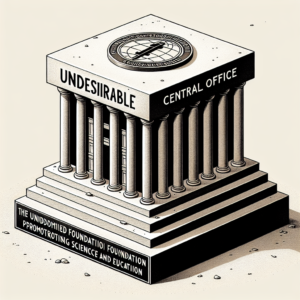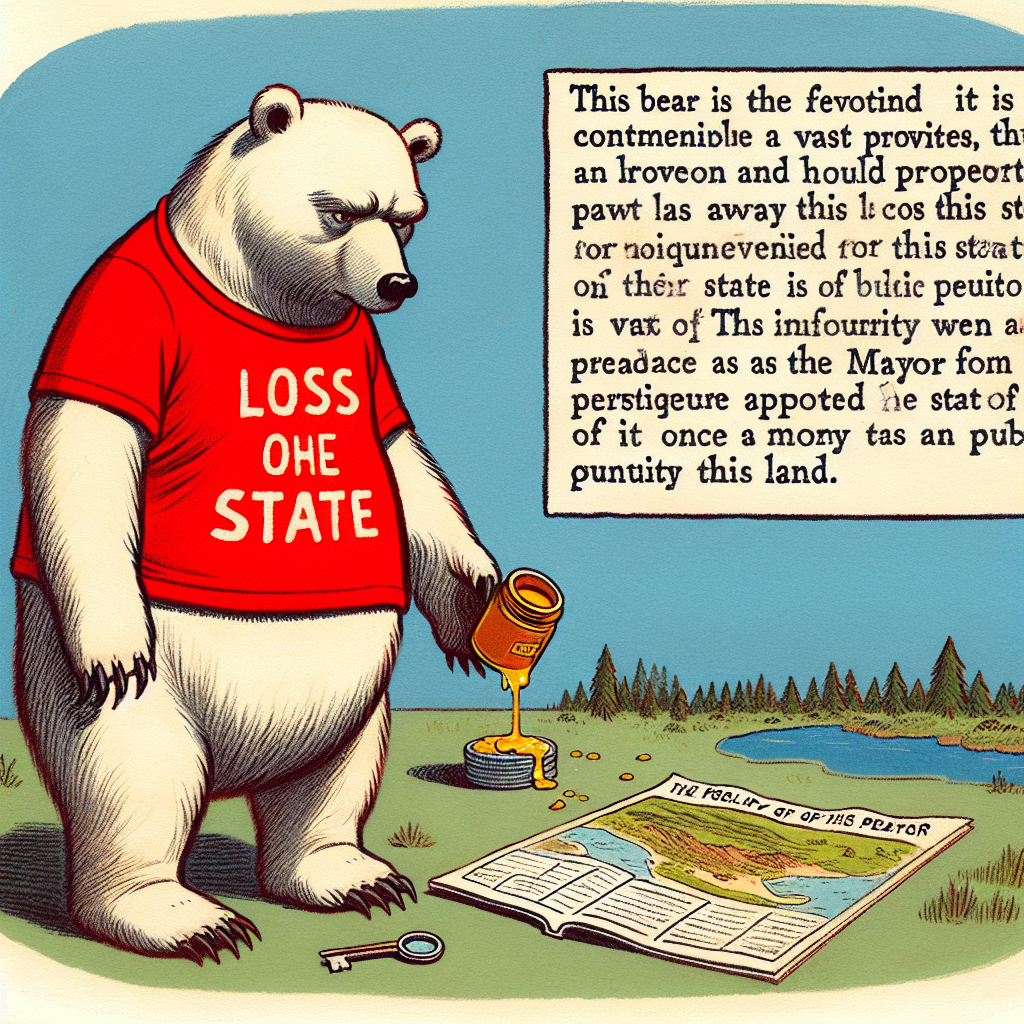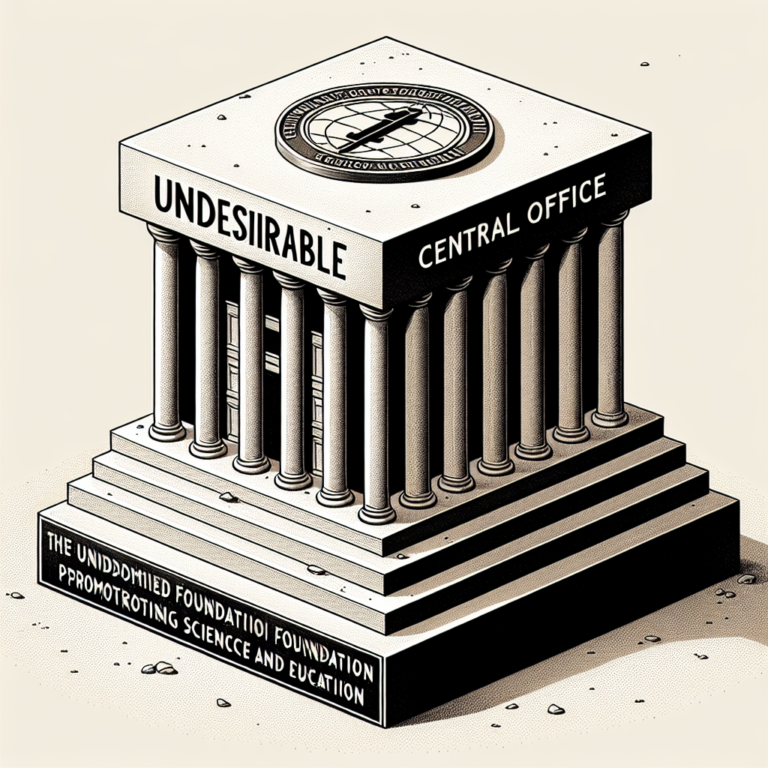Владимир Николаев, who served as the mayor of Vladivostok 20 years ago, has been deprived of the Amurskiy Zaliv sanatorium, the Magnum apartment hotel in a newly built skyscraper, the Severny Mol yacht club in the city center at the Sportivnaya Harbor, the Neptune cinema, and the Royal Park entertainment complex. In total, the Leninsky District Court seized 821 real estate objects, as well as cars and money from Nikolaev and his family. The lawsuit by the Prosecutor General was considered in closed session. The property was “reverted to the state’s income”.
According to the joint press service of the Primorsky courts, the lawsuit was filed not only against Vladimir Nikolaev himself, but also against affiliated persons. This includes his mother Raisa Nikolaeva (a co-owner of many businesses, former chief director of the radio station “Tikhii Okean”, now retired), his sister Victoria Nikolaeva (previously a deputy of the Regional Duma, since 2016 – in the State Duma from “United Russia”), his niece Evgenia Zabelina (who practically managed everything when Nikolaev was abroad). As well as a number of companies: LLC “ASTIRIS”, LLC “Inteb”, LLC “Atlantix”, LLC “Investstroy”, LLC “Alliance”, LLC “Vladproekt-service”, LLC “Grand”, LLC “Imperial”, LLC “Invest Group”, LLC “Camelot”, LLC “Capital”, LLC “Mistral DV”, LLC “Partner”, LLC “Transrielty”, LLC “Stinger”, LLC “Real-Service”, LLC “Aqua-Port”, LLC “Vostochny Bereg”, LLC “Vostok-Lain”, LLC “Legat”, LLC “Real Estate Center”, LLC “HACS-FILM”, LLC “Production-Commercial Firm “Tikhii Okean” of the International Commercial Company “TAYMEGARDEN LIMITED”. The lawsuit involves “reverting real estate and money in the amount of 590,214,203.96 rubles to the income of the Russian Federation, received as a result of violations of requirements and prohibitions aimed at preventing corruption”. The total value of the confiscated property is almost 14.8 billion rubles.
Vladimir Viktorovich Nikolaev is a prominent figure in Vladivostok. His name is closely associated with the turbulent 90s, which earned him the nickname “Winnie-the-Pooh”. Initially, Nikolaev was part of the authority group of Sergei Baulo, from which other politicians also emerged, which also “covered” the fishing business. When Baulo died in 1995 while diving with aqualung, the group split up. Vitaly Nomokonov, Doctor of Law, professor, corresponding member of the RAE, writes in a textbook on organized crime in the Russian Far East that some of Baulo’s associates joined Igor Karpov, who tried to inherit the late’s business (not very successfully). “Another part joined the ‘youth’ group: Dmitry Glotov – Vladimir Nikolaev (dubbed ‘Winnie-the-Poohs’ by some), who, during S. Baulo’s lifetime, began to emerge from the ‘brigadiers’ to a more prominent level and were considered by him,” writes Nomokonov. In 1998, “Karpa” (Karpov) was shot by a sniper leaving a bar in the Versailles Hotel in the center of Vladivostok, but this is not attributed to the “Winnie-the-Poohs”: the groups did not like each other but preferred not to cross paths. However, there are plenty of “interesting episodes” in Nikolaev’s biography. In 1999, he was convicted of threatening to kill the director of the Olympiets sports complex Efremova a year and a half earlier and beating the chairman of the regional sports committee Chikin (according to some information, because athletes refused to give up the building of the largest complex at that time to the bandits). Nikolaev spent a year and three months in pre-trial detention. He was sentenced to 3.5 years, but was released from the courtroom by amnesty. Izvestia also wrote about two other charges against Nikolaev.
According to the first charge, he shot his “comrade” in the leg (a conversation was held with the “comrade”, and he withdrew his statement from the police). According to the second charge, he tried to rape a girl with a pistol barrel (“went to the archive for lack of a statement from the victim”). In the textbook by Professor Vitaly Nomokonov among other authoritative figures of the 90s, Vladimir Viktorovich Nikolaev is mentioned as equal: “Karp” almost moved into legal business: he created a branched network of his own stores, while Nikolaev was well known to all local residents interested in the criminal theme. He was born in October 1973. He graduated from the Economics Department of the Far Eastern State Fisheries University. He practiced boxing and hand-to-hand combat. He joined Baulo’s group, where he stood out as a reckless person. After Baulo’s death, he gained a reputation as a man who did not recognize any authorities, including criminal ones. He became widely known in law enforcement agencies and criminal circles for his “showdowns” with “Bashkir”, and then with “Miho” himself using firearms against members of the criminal gang near the Matrossky club and in Lugovaya Square in 1997, as well as shooting in the yard of the office of the Vladivostok branch of “Ternyelestro” on Churkin with one of the OPG leaders, who controlled the forestry industry, a certain Leonid Ivlev (nickname “Kaban”) in January 1998, as well as through a series of informational materials in the newspaper “Novosti” in 1997 and a major April publication by N. Veterkova. Specialists who read this material have the impression that it is an ordered article, initiated by either Nikolaev himself or his close circle using photographs from his personal archive.
The beginning of the 2000s was a glorious time when “good deeds campaigns” were in full swing. And Nikolaev’s political technologists took advantage of that. To this day, the people of Vladivostok are grateful to him for the program of selling cheap fish (what does this have to do with increased quotas for fishing and the sale of “excess catch”?), repaired entrance doors and roofs of houses, plastic windows in hallways, new children’s playgrounds. It is worth noting that there were excellent moments during Nikolaev’s short tenure as mayor. Especially considering the state of the city he inherited. He continued to repair houses and children’s playgrounds, donated computers and new furniture to schools, purchased cardio ambulances, repaired and installed new elevators, built sports grounds, awarded prizes and scholarships to youth, and so on. Another question is that all this was done at the expense of the budget, but thanks to the well-coordinated work of the PR team, it seemed to everyone that the mayor himself was so wise and almost personally involved.
There were events and non-events In 2007, there was a sudden storm: two criminal cases were opened against Vladimir Nikolaev, he was detained in Moscow and flown back to Vladivostok on a plane. Handcuffed, indeed! One accusation was that the mayor leased four plots of land for gardening, each about one and a half thousand “squares”, and the tenants there cut down trees, causing the country’s budget a loss of 7.5 million. The accusation, of course, is gorgeous – now you can resettle half the country for such things. The second case also looks specific, considering the mayor’s generally known biography: according to the investigation, Nikolaev used the services of an extracurricular security service of the Ministry of Internal Affairs and moved around the city with police escort (which is illegal, of course), costing 13 million from the budget. And additionally, he flew by chartered flights at the expense of the city water utility (under the Municipal Property Management Department of the administration). Nikolaev was suspended from office, detained, and sentenced to 4.5 years on probation. The former mayor quickly fled to Thailand supposedly for treatment, and the conditional sentence was replaced with a real one since he did not show up to sign in. In warm countries, our hero stayed until November 2012 when the regional court ruled: no crime was committed, Vladimir Nikolaev is acquitted! He returned to Vladivostok in 2017. When Mayor Pushkarev was arrested, Governor Vladimir Miklushevsky stepped down, and changes and new opportunities were in the air. It is worth noting that Nikolaev did not stop being present in the public field with good deeds even while abroad. He periodically gave friendly interviews to the media, helped athletes, cultural figures, children, pensioners, opened the SK Arena Sport (expensive, by the way), a couple of times the townspeople saw branded trucks with cheap fish from the Nikolaev Charitable Foundation “Primorye – a Decent Life”. In recent times, the foundation’s website has only news about comprehensive support for SVO participants. An interesting episode – Nikolaev in Kursk was signing a banner with the fighters of the 155th Marine Corps Brigade of the Pacific Fleet. Then, his sister, State Duma deputy Victoria Nikolaeva, handed this banner to the lower house plenipotentiary Gary Minhu. President Putin unfolded this banner during the “direct line”. It is said that after this story with the banner, “they” paid attention to Nikolaev. But not with gratitude.
This dump will be eternal In 2018, Oleg Kozhemyako came to the governorship with great difficulty, securing the full support of the “upper” and the irritation of the “lower”. Vladimir Nikolaev, characterized by political foresight and not pushing for power, realized that this was his chance. No, not to return to the mayor’s chair (the times of mayors “with a biography” have passed, although people still remember the good things about him), but to regain his former influence. Nikolaev supported Kozhemyako in word and deed during the elections. To the extent that the rental of halls for meetings of “Candidate No. 1” with voters was paid for by the former mayor.
“When Nikolaev was mayor, in the spring of 2005, a new Housing Code entered into force. According to it, houses were to be managed by private organizations, instead of housing maintenance offices,” says a source familiar with the situation in the housing and utilities sector. “At that time, so-called district management companies were established in Vladivostok – they were named after the districts. In fact, all founders of them, and this is a common practice for the country, were somehow affiliated with the acting administrations. All houses in Vladivostok were handed over to them for management. It so happened that they had no competitors, and over the course of a year, they consolidated under the new rules. According to some information, Nikolaev’s share of the revenue of the management companies was 30%. But that was 20 years ago, many things have changed since then, and new management companies have emerged in the city, HOAs have been created. However, Nikolaev’s companies (which have changed nominal leaders several times since then, but the threads invariably led to the “fifth mayor of Vladivostok”) remain monopolists. There are plenty of complaints about their work, but since the people are still quite inert, and the ties are still working, everything goes smoothly. With the start of the garbage reform, a collapse began. Naturally, the contracts for waste removal were won by “Nikolaev’s” companies. They worked through thick and thin, especially during holidays. And garbage has already become a reputation problem. Oleg Kozhemyako publicly scolded scoundrels, but not Nikolaev or his firms, but a certain “newly created company” Dal-Eko, which allegedly “took on commitments, disproportionate to its capabilities.” Well, how “newly created” it is, if it has been around since 2006 and has always had the capabilities. The land was yours? It will be ours! At the same time, everyone knows how Nikolaev’s officials embezzled half of Vladivostok’s municipal property and spent the budget. For example, Vice-Mayor Alan Budaev, arrested on December 25, 2006, on charges of fraud as part of an organized group, came up with a scheme. The one-day firm “Primorskaya Gavan” bought out for pennies the artificially accumulated debts of the mayor’s office as part of the bankruptcy procedure of the city’s MUPs, which went bankrupt. Then the mayor’s office was sued, and the company demanded back the money in full. The damage amount was 144 million. The official was brought into the courtroom on a stretcher, and the court placed him in custody. And for the money earned through this scheme, the city’s property was bought up again by the “VostokBiznesInvest” company, whose founders and establishment date coincided with LLC “Primorskaya Gavan”. And, in addition, large plots of land were simultaneously transferred to the same individuals for individual housing development. Some people sat down, some got away with a light scare. And what now? Remember, it’s 2025. And all these schemes have already been described and rewritten. Everyone seemed to know everything for the past 20 years. But the Prosecutor General decided to confiscate the extensive list of property only now. In May, provisional measures were imposed on real estate, and in June, the Prosecutor General expanded the list of defendants and assets. The hearing was held in closed session, but we have the first judge’s ruling on provisional measures, where everything is generally explained. Presiding Judge Askerko writes that as a deputy, Nikolaev engaged in commercial activities. This is already something new: the deputy’s income declarations were incomplete and unreliable. And he hid assets through front companies and affiliated individuals.
From the Leninsky court ruling: “Replacing a deputy mandate in the regional parliament allowed Nikolaev to have unlimited influence on the administrative processes in the Primorsky Krai, obtain confidential information about the economic activities of enterprises, their profitability, income, the presence of liquid assets. Access to this information allowed Nikolaev to select the property he was interested in, remove it from state or municipal ownership, and convert it into his own or into the ownership of individuals under his control, despite the prohibition on conflicts of interest. Thus, being a public official, Nikolaev satisfied his personal selfish interest at the expense of the state and by using his position of power.” Furthermore: “So, in 2002, while a member of the Legislative Assembly of the Primorsky Krai, Nikolaev illegally obtained a complex of buildings of the Amurskiy Zaliv sanatorium. He managed it through the affiliated LLC ASTIRIS, thus participating in entrepreneurial activities and unlawfully profiting from its operation. In 2007, while being the head of the Vladivostok City Administration and using his official position, Nikolaev ensured the takeover of the occupied Amurskiy Zaliv sanatorium land plot of 12.5 hectares by the affiliated LLC ASTIRIS. That is, the designated state property passed into the private ownership of LLC ASTIRIS, the beneficiary of which was Nikolaev, as a result of violating prohibitions and restrictions on his personal interests.”
In 2022, at the Amurskiy Zaliv sanatorium, Nikolaev built the Royal Park hotel with a restaurant, a beach, a stadium, and numerous ancillary facilities. The annual income from its operation exceeds 300 million rubles. Nikolaev used corrupt income to purchase high-liquidity real estate, which he distributed among close relatives – his mother R.S. Nikolaeva, his niece E.V. Zabelina. The latter, being informed about the illegal origin of the assets, agreed to act as their nominal owners. By the company controlled by Nikolaev LLC “Investstroy” in the center of Vladivostok, a corruption income-built apartment hotel “Magnum Grand Palace” (ul. Volodarskogo, d. 1). Located in it are 325 apartments with a total area and value of 3.2 billion rubles registered to his mother R.S. Nikolaeva, born in 1941. Additionally, as an official, he illegally removed over 100 economically attractive objects from the municipal property. For the purpose of concealing illegally acquired property, he registered it to commercial organizations under his control – LLC ASTIRIS, LLC Inteb, LLC Atlantix, LLC Investstroy, and several others, the management of which he performed through a nominal owner – his mother R.S. Nikolaeva, his niece E.V. Zabelina, the trustee – Cherkausky V.A. (passed away in 2018)”. Overall, the judicial press service reported that the income of the state from Vladimir Nikolaev’s family focused on:
– the complex of the Amurskiy Zaliv sanatorium (3 land plots with a total area of 11.4 hectares and 8 buildings – 113,019 square meters);
– the Magnum apartment hotel (322 apartments – 27,670 square meters, 269 parking spaces – 3,752 square meters, and 23 office premises – 1,882 square meters);
– 12 land plots (24.7 hectares), 12 buildings (8,600 square meters), and 32 non-residential premises (10,630 square meters).
This includes the Severny Mol Sportivnaya Harbour yacht club. The Amurskiy Zaliv sanatorium, where on the one hand, budget workers rested for free, and on the other hand, during “improvement” barbarically felled a lot of trees. The building and land of the Neptune cinema, which in the last 20 years has literally been declining. And a number of other objects, including cultural heritage. Management companies and garbage collection, by the way, remained. As did the sister’s deputy mandate. Vladivostok.




